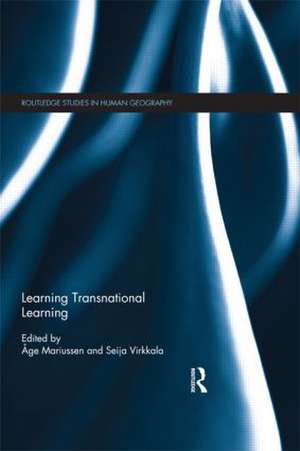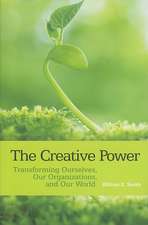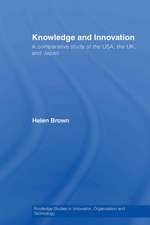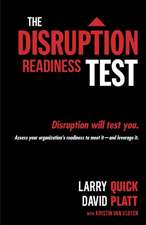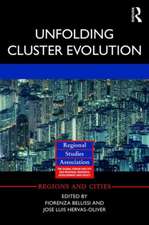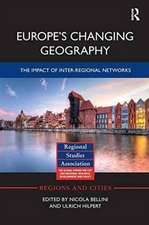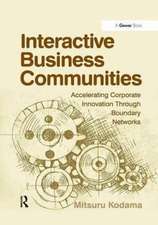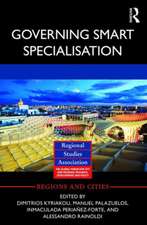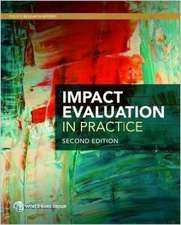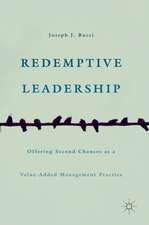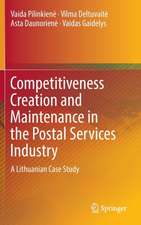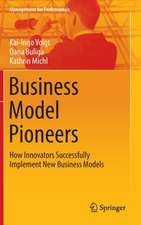Learning Transnational Learning: Routledge Studies in Human Geography
Editat de Åge Mariussen, Seija Virkkalaen Limba Engleză Paperback – 4 mar 2015
In practice, the field of transnational learning has been dominated by various policy-making institutions, such as the OECD and European Union, working through different types of policy instruments and programs such as structural funds, open methods of coordination, as well as international research institutions and networks set up by cooperating national governments working on comparative analysis, benchmarking and indicators.
This book lays out a set of methods which can further enhance the experience of transnational learning, starting from the sociological ideas promoted by Charles Sabel of learning through monitoring, and by Marie Laure Djelic and others of the “translation” of experiences between different countries. Case studies and examples are collected from three fields: industrial development, tourism and local government.
| Toate formatele și edițiile | Preț | Express |
|---|---|---|
| Paperback (1) | 474.14 lei 6-8 săpt. | |
| Taylor & Francis – 4 mar 2015 | 474.14 lei 6-8 săpt. | |
| Hardback (1) | 1069.92 lei 6-8 săpt. | |
| Taylor & Francis – 29 apr 2013 | 1069.92 lei 6-8 săpt. |
Din seria Routledge Studies in Human Geography
-
 Preț: 332.18 lei
Preț: 332.18 lei -
 Preț: 371.71 lei
Preț: 371.71 lei -
 Preț: 334.09 lei
Preț: 334.09 lei -
 Preț: 341.09 lei
Preț: 341.09 lei - 18%
 Preț: 1057.75 lei
Preț: 1057.75 lei - 18%
 Preț: 1072.71 lei
Preț: 1072.71 lei - 12%
 Preț: 299.87 lei
Preț: 299.87 lei -
 Preț: 490.62 lei
Preț: 490.62 lei - 28%
 Preț: 823.63 lei
Preț: 823.63 lei - 18%
 Preț: 1058.79 lei
Preț: 1058.79 lei - 18%
 Preț: 1054.71 lei
Preț: 1054.71 lei - 13%
 Preț: 296.11 lei
Preț: 296.11 lei - 18%
 Preț: 1057.89 lei
Preț: 1057.89 lei - 28%
 Preț: 822.76 lei
Preț: 822.76 lei - 18%
 Preț: 732.06 lei
Preț: 732.06 lei -
 Preț: 414.32 lei
Preț: 414.32 lei - 18%
 Preț: 1062.98 lei
Preț: 1062.98 lei - 18%
 Preț: 702.31 lei
Preț: 702.31 lei - 18%
 Preț: 1057.09 lei
Preț: 1057.09 lei - 18%
 Preț: 1169.66 lei
Preț: 1169.66 lei - 18%
 Preț: 1114.98 lei
Preț: 1114.98 lei -
 Preț: 408.54 lei
Preț: 408.54 lei -
 Preț: 419.50 lei
Preț: 419.50 lei - 28%
 Preț: 823.08 lei
Preț: 823.08 lei -
 Preț: 373.59 lei
Preț: 373.59 lei - 5%
 Preț: 353.14 lei
Preț: 353.14 lei - 18%
 Preț: 1055.06 lei
Preț: 1055.06 lei - 18%
 Preț: 1058.69 lei
Preț: 1058.69 lei - 18%
 Preț: 1065.06 lei
Preț: 1065.06 lei - 18%
 Preț: 1060.87 lei
Preț: 1060.87 lei - 18%
 Preț: 1069.92 lei
Preț: 1069.92 lei -
 Preț: 418.65 lei
Preț: 418.65 lei -
 Preț: 446.58 lei
Preț: 446.58 lei -
 Preț: 408.74 lei
Preț: 408.74 lei -
 Preț: 423.30 lei
Preț: 423.30 lei - 18%
 Preț: 1055.51 lei
Preț: 1055.51 lei - 28%
 Preț: 878.82 lei
Preț: 878.82 lei - 18%
 Preț: 1061.57 lei
Preț: 1061.57 lei - 28%
 Preț: 849.84 lei
Preț: 849.84 lei - 18%
 Preț: 733.11 lei
Preț: 733.11 lei - 28%
 Preț: 852.64 lei
Preț: 852.64 lei - 12%
 Preț: 338.81 lei
Preț: 338.81 lei - 26%
 Preț: 764.20 lei
Preț: 764.20 lei
Preț: 474.14 lei
Nou
Puncte Express: 711
Preț estimativ în valută:
90.72€ • 94.73$ • 74.92£
90.72€ • 94.73$ • 74.92£
Carte tipărită la comandă
Livrare economică 15-29 aprilie
Preluare comenzi: 021 569.72.76
Specificații
ISBN-13: 9781138904866
ISBN-10: 1138904864
Pagini: 412
Ilustrații: 44 black & white illustrations, 27 black & white tables, 44 black & white line drawings
Dimensiuni: 156 x 234 x 13 mm
Greutate: 0.57 kg
Ediția:1
Editura: Taylor & Francis
Colecția Routledge
Seria Routledge Studies in Human Geography
Locul publicării:Oxford, United Kingdom
ISBN-10: 1138904864
Pagini: 412
Ilustrații: 44 black & white illustrations, 27 black & white tables, 44 black & white line drawings
Dimensiuni: 156 x 234 x 13 mm
Greutate: 0.57 kg
Ediția:1
Editura: Taylor & Francis
Colecția Routledge
Seria Routledge Studies in Human Geography
Locul publicării:Oxford, United Kingdom
Public țintă
PostgraduateCuprins
Introduction Åge Mariussen and Seija Virkkala Part I: Conceptual, Preliminaries, Theores, and Methods of Transnational Learning 1. Sociological Preliminaries: The Societal Content of Transnational Learning Åge Mariussen 2. Geographical Perspectives: Regional Development and Transnational Learning Seija Virkkala 3. Theory of Organizational Knowledge Creatiion as a Framework for Transnational Learning in Regional Development Seija Virkkala and Åge Mariussen 4. Is Transnational Learning Possible? Åge Mariussen and Seija Virkkala 5. Methodologies and Methods of Transnational Learning Åge Mariussen and Seija Virkkala 6. New Public Management as a Global Community Promoting Transnational Learning: Agencificational as an Example Esa Hyyryläinen 7. Discovering the Process Perspective: Unfolding Potential of Transnational Learning in Interreg Verena Hachmann Part II: Nordic Attempts at Transnational Learning 8. Nordic Learning - Introduction to Part II Åge Mariussen 9. Industrial Development and Competence Building; Learning Across Converging Trajectories Seija Virkkala 10. Transnational Learning? The Case of Restructuring in Small Industrial Towns Kenneth Nordberg 11. Developing Destinations in the Northern Periphery Dieter K. Müller and Ulrika Åkerlund 12. Learning Transnational Learning: a Transatlantic Perspective Wanda George of Kristina Svels 13. Transnational Learning in Local Governance: Two Lessons from Finland Hannu Katajamäki and Åge Mariussen
Notă biografică
Åge Mariussen is Botnia-Atlantica Institute leader at the University of Vaasa, Finland and Senior Researcher at the Nordland Research Institute, University of Nordland, Norway
Seija Virkkala is Professor of Regional Studies in the Faculty of Philosophy at the University of Vaasa, Finland.
Seija Virkkala is Professor of Regional Studies in the Faculty of Philosophy at the University of Vaasa, Finland.
Descriere
Systems of innovation that are conducted within national borders can preserve inefficient solutions and prevent development. This has led to a feeling that transnational learning strategies are more and more desirable.
This book lays out a set of methods which can further enhance the experience of transnational learning, starting from the sociological ideas promoted by Charles Sabel of learning through monitoring, and by Marie Laure Djelic and others of the “translation” of experiences between different countries. Case studies and examples are collected from three fields: industrial development, tourism and local government.
This book lays out a set of methods which can further enhance the experience of transnational learning, starting from the sociological ideas promoted by Charles Sabel of learning through monitoring, and by Marie Laure Djelic and others of the “translation” of experiences between different countries. Case studies and examples are collected from three fields: industrial development, tourism and local government.
